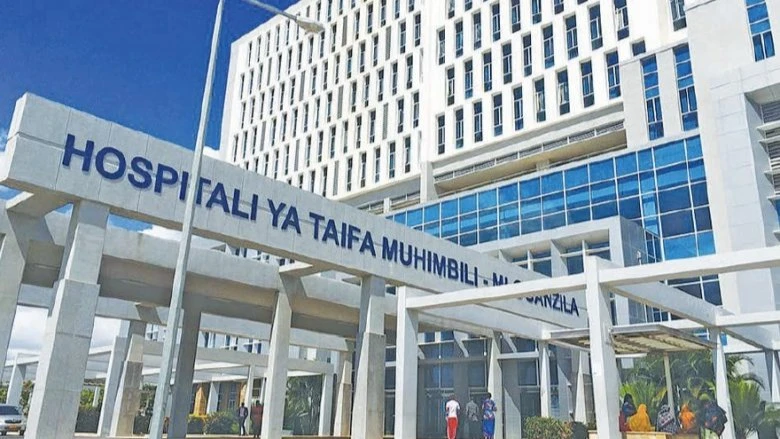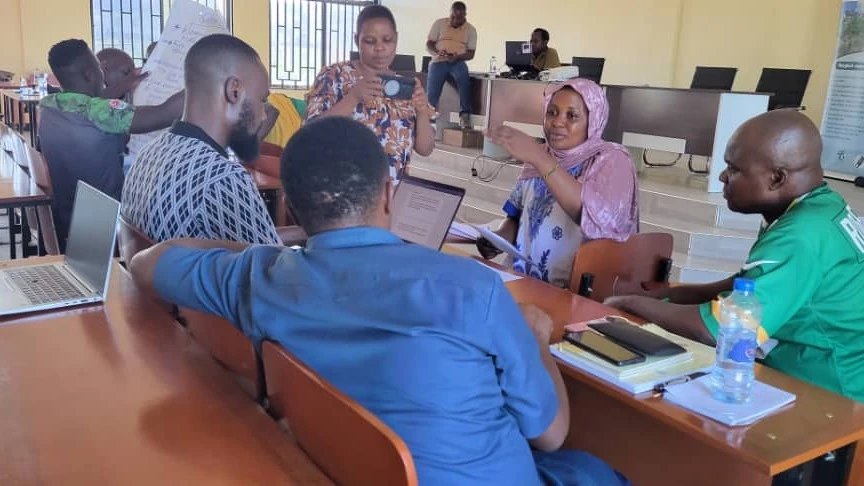Scientists point at high risks for gains in malaria , AIDS, TB fights

DOMESTIC financing contributes about 42.8 percent of the total current health expenditures, a marginal increase from the previous year, leaving a large portion of essential services vulnerable to unpredictable off-budget donor support, a team of scientists has cautioned.
This observation is raised in a report on recent research led by Francis Ngadaya of the Ifakara Health Institute, working with colleagues at the National Institute for Medical Research (NIMR) and its Muhimbili National Hospital research outfit, synthesizing insights from 76 policymakers and healthcare workers.
The scientists issued a firm alert on likely massive decline in medical care for flagship health programmes fighting malaria, HIV/AIDS and tuberculosis (TB), in the new study published in BMJ Public Health, a British medical open access journal based in London, in its September 29 edition.
They say that the nation must find sustainable domestic financing solutions for those programmes as funding from international donors was in sharp decline, sketching out strategies to bridge the growing funding gap, as without immediate action, hard-won progress against the three major diseases could stall or be substantially reversed.
The absence of this funding could lead to short-term disruptions in essential treatments and a long-term increase in disease burden and mortality, they said, noting that beyond new revenue streams there is a critical need for internal reform to maximize existing resources.
A key feature of their suggestions is introducing the universal health insurance scheme by expanding coverage to generate stable, predictable revenue, while imposing taxes on specific products and services, where they point at the need for utilizing 'sin taxes' or levies on certain goods to channel funds directly to health services.
They also suggest creating disease specific funds by establishing dedicated mechanisms like a TB Trust Fund to ensure long-term, targeted financing, reducing groups receiving free healthcare services by strategically limiting blanket exemptions to improve cost recovery and focus free services on the truly vulnerable.
The study asserts that for years, Tanzania, like many sub-Saharan African countries, has relied heavily on international partners such as the President’s Emergency Plan for AIDS Relief (PEPFAR) of the United States and the Global Fund, operating under the World Bank Group, a reliance that has become unsustainable.
Global priorities are shifting and the aftermath of the COVID-19 pandemic strains aid budgets, so Tanzania has to reduce its heavy dependence on donors to safeguard hard-won progress against malaria, HIV, and TB, the researchers emphasized.
Stricter accountability is also being demanded by improving transparency in how health funds are managed and utilized, tied with decentralization, in allocating a set percentage of district revenues to health services and granting local facilities more autonomy over funding decisions, they emphasised.
Cost-saving measures like investing more heavily in prevention and early diagnosis, reducing waste in hospitals and improving drug availability through local manufacturing were also taken up, citing examples from other countries.
Kenya has established an HIV Trust Fund using 0.5 percent to 1.0percent of total government revenue, while Namibia and Malawi implemented blended approaches including private sector contributions and airline levies, the study asserts, affirming that these are usable models for sustainable financing.
The researchers cautioned that barriers remain, especially poor public awareness, conflicting political promises and concerns about accountability. “Without clear communication and stronger systems for transparency, efforts could be undermined by public resistance and misuse of funds,” the study intoned.
The study was intended to inform policymakers and health sector leaders on developing comprehensive policies that promote sustainable funding, ensuring the country can secure the health and well-being of its citizens, it added.
Top Headlines
© 2025 IPPMEDIA.COM. ALL RIGHTS RESERVED






















